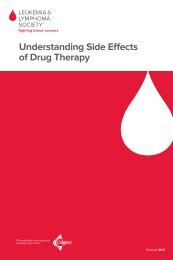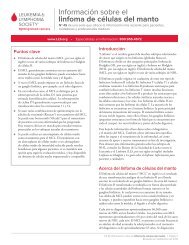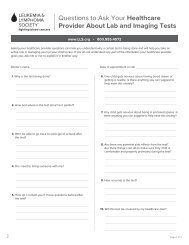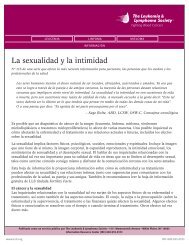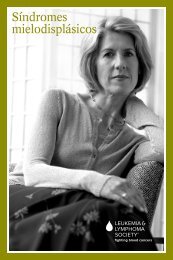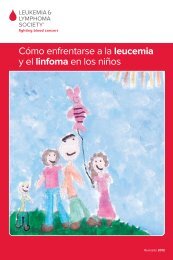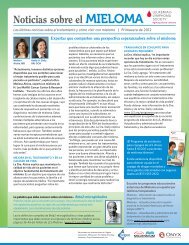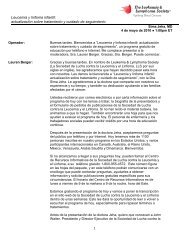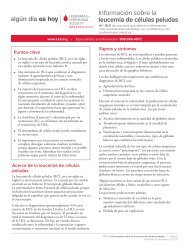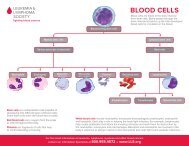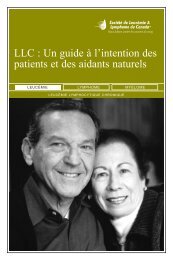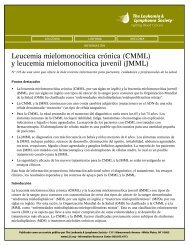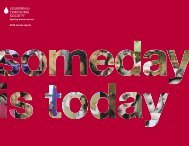Blood Transfusion (PDF) - The Leukemia & Lymphoma Society
Blood Transfusion (PDF) - The Leukemia & Lymphoma Society
Blood Transfusion (PDF) - The Leukemia & Lymphoma Society
Create successful ePaper yourself
Turn your PDF publications into a flip-book with our unique Google optimized e-Paper software.
Introduction<br />
Each year more than 14½ million units of whole blood are collected and 5 million<br />
patients are transfused with blood components in the United States. (Source: <strong>The</strong><br />
2007 National <strong>Blood</strong> Collection and Utilization Survey Report; 2007 is the most<br />
recent year for which data are available.) Each unit is generally divided into three<br />
components: red cells, platelets and plasma. Most of the red cells are transfused<br />
to patients undergoing surgical procedures. Patients with leukemia, lymphoma,<br />
myeloma, myelodysplastic syndromes and myeloproliferative neoplasms (blood<br />
cancers) frequently receive platelets and some red cells; they may require more<br />
blood components overall than surgical patients because their need is likely to<br />
continue over a period of weeks or longer. In addition, most patients who undergo<br />
marrow or blood stem cell transplantation will be transfused.<br />
<strong>The</strong> most frequently asked questions about blood transfusion relate to<br />
{ { <strong>The</strong> safety of the blood supply (see page 8)<br />
{ { Diseases that can be transmitted by blood components (see page 9)<br />
{ { Other complications that may occur following blood transfusion and what is<br />
being done to reduce those risks (see page 16).<br />
Here to Help<br />
This booklet will be helpful when you talk to your doctor about blood transfusions.<br />
We encourage you to take the lead in asking questions and discussing your fears<br />
and concerns. This will give members of your healthcare team the opportunity to<br />
answer your questions, extend emotional support and provide any needed referrals.<br />
LLS Has Ways to Help. LLS offers free information and patient services for<br />
individuals and families touched by blood cancers.<br />
Speak to an Information Specialist. Information Specialists are master’s level<br />
oncology professionals. <strong>The</strong>y provide accurate, up-to-date disease and treatment<br />
information and are available to speak with callers Monday through Friday, from<br />
9 a.m. to 6 p.m. ET at (800) 955-4572. You can email infocenter@LLS.org or chat<br />
live with a Specialist at www.LLS.org.<br />
Language Services. Free language services are available when you speak with an<br />
Information Specialist. Let your doctor know if you want a professional healthcare<br />
interpreter who speaks your native language or uses sign language to be present<br />
during your visit. Many times, this is a free service.<br />
<strong>Blood</strong> <strong>Transfusion</strong> I page 1



